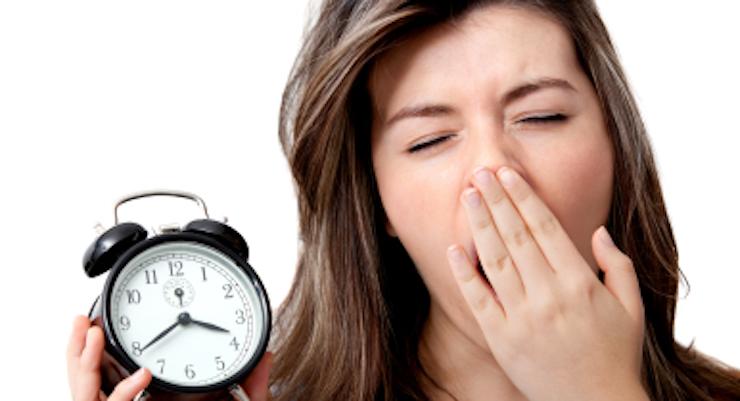
- Health advice
- Dec 16, 2016
Have you been feeling tired or fatigued lately? Although it’s something that we talk about often, it’s also a very personal experience, and is likely to mean something different to each of us.
What do we mean when we say we’re tired or fatigued?
In general, the term fatigue implies that we’re lacking the capacity to do the things we need and want to do. That shortfall in energy can affect us in a myriad of different ways, encompassing the physical (such as when you say, ‘My legs are too tired to walk any further’), the mental (‘I’m too tired to concentrate on my work any longer’), and the emotional (‘I’m sorry that I lost my temper, but I was tired’). Sometimes fatigue affects all of these aspects of our lives simultaneously, creating a generalised sense of tiredness. However, that’s not always the case; for example, it’s possible to feel physically exhausted after a heavy exercise session, but mentally alert and energised at the same time.
Why do stress and tiredness go hand-in-hand?
Initially, your body and mind respond to stress by shifting those aspects of your physiology that are involved in protecting you from danger into peak performance mode. That means that when you’re dealing with a family crisis, working long hours to meet a deadline or taking evasive action against an oncoming car, you’re likely to find yourself feeling focused, alert and ready to spring into action in a split second. However, this phase of adapting to stress by increasing the efficiency of key body systems is something that you’re only able to sustain for a relatively short period of time, and it places large demands on your body, after which you need to rest. If the cause of the stress is particularly significant or persists for a long time, fatigue and even exhaustion are likely to develop, and to persist until you’re able to recover and life returns to normal. Unfortunately, if you face ongoing stress, your recovery may be hampered, and over time, your capacity to adapt and cope with such situations may progressively decline – along with your energy levels.
Herbs to promote energy and enhance stress coping
In many different forms of herbal medicine (including Western, Chinese and Ayurvedic herbalism), herbs have traditionally been used to promote resistance to stress, support the body and mind during times of intense pressure, and aid recovery during rest. Herbs used in this way are called adaptogens (their name is a reference to their reputation for helping the body and mind adapt to stressful circumstances) the most famous of which is Korean Ginseng. Other herbs that work in similar ways include Siberian Ginseng, American Ginseng and Withania (sometimes referred to as Indian Ginseng). Together, these and other adaptogenic herbs may help to boost your energy levels while also enhancing your ability to cope with stress.
Fatigue is a sign you need more rest
It stands to reason that if you're feeling tired it may be because you need more rest. Importantly, that rest should involve healthy sleep, which is critical to your ability to recharge. Many people under-estimate the effect that inadequate sleep has on their energy levels and ability to function. Most adults need 7-9 hours of sleep each night. If you’re one of those people who pushes themselves to get by on less, be aware that what you gain in an extra hour or two of wakefulness, you may lose in productivity. Being overtired can increase your tendency to lose focus and coordination, and may even increase your risk of having an accident. On the other hand, many people don't get enough sleep because they have difficulty falling or staying asleep, sometimes finding themselves caught up in an ironic and vicious cycle in which their sleep is disrupted due to stress and mild anxiety, and their ability to cope with stress declines because they’re not getting enough rest. If you’re having trouble drifting off, or if you wake at night and are unable to get back to sleep, taking a herbal sedative may help. The Western herb Passionflower is an excellent option because it has traditionally been used to address poor quality sleep (including difficulty falling asleep, frequent waking, dream-disturbed sleep, restlessness, and light sleep), and is also regarded as having mild anti-anxiety properties that may be beneficial when nervous tension is present. Supportive herbs to look for may include the traditional Chinese medicines Ziziphus, Albizia and Polygala.
Mr Vitamins recommends
Fusion Health, premium quality Australian-made supplements that combine the ancient wisdom of Chinese medicine and the science of modern Western herbalism, including:
- Fusion Energy: Helps relieve fatigue, lethargy and exhaustion, and increase energy and vitality
- Fusion Sleep: Non-habit-forming sedative herbs to promote restful sleep
Always read the label. Use only as directed. If symptoms persist consult your healthcare practitioner. References available on request. https://www.mrvitamins.com.au/catalogsearch/result/?q=Fusion+Sleep
Related Articles
Recently Viewed
- ${ variant.price | currencyFromCents } | ${ variant.title } ${ variant.price | currency } | ${ variant.title }


















